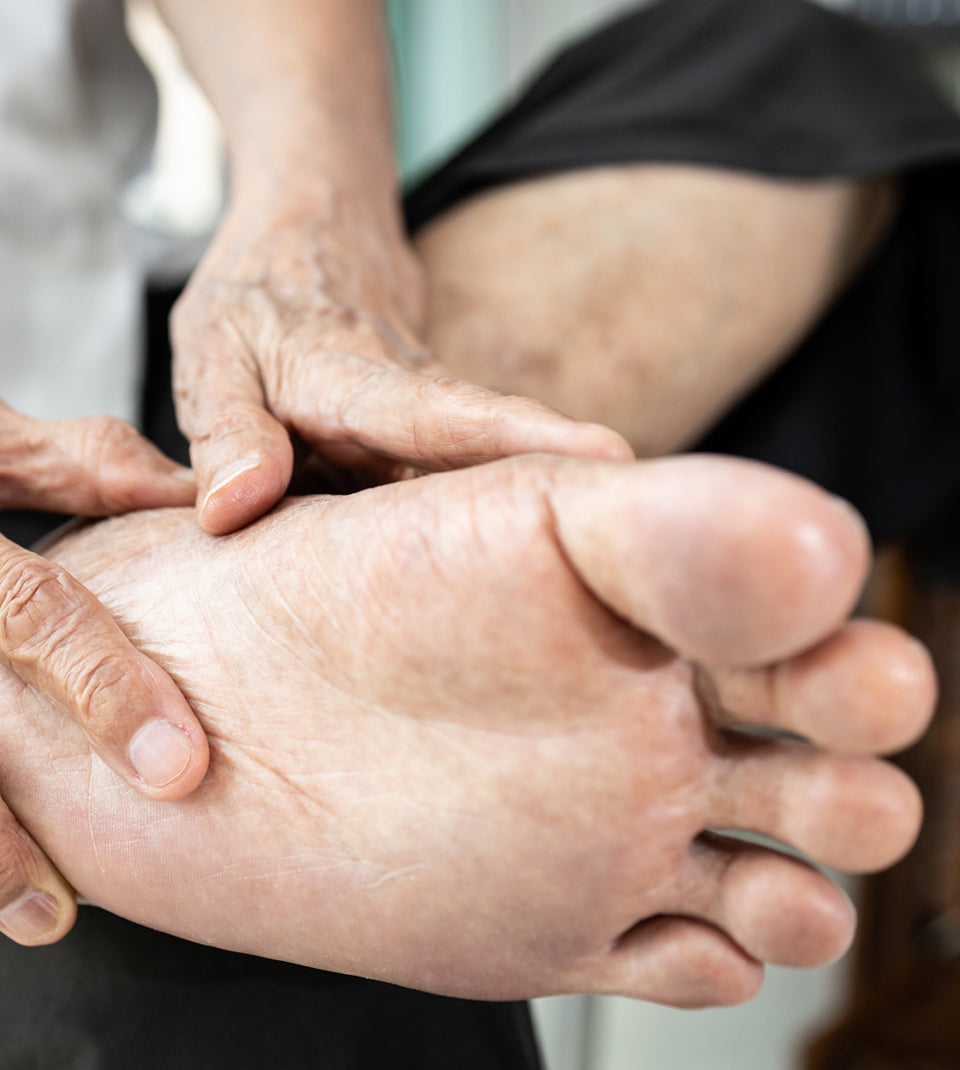Proper footwear is essential in preventing corns and maintaining overall foot health. By choosing shoes that fit well, provide adequate support, and minimise friction and pressure, you can significantly reduce your risk of developing corns. Read more to learn the simple tips to finding your best footwear for corn prevention.
What are corns?
Corns are small, thickened areas of skin that develop on the feet due to repeated pressure or friction. While they are generally not serious, corns can be painful and may interfere with daily activities. One of the most effective ways to prevent corns is by ensuring you wear appropriate footwear.
Understanding corns and their causes
Corns that form on the tops or sides of toes and are often the result of:
- Ill-Fitting Shoes: Shoes that are too tight can rub against the skin, causing friction and pressure that lead to corn formation. Conversely, shoes that are too loose can cause your feet to slide, creating similar issues.
- High Heels and Narrow Toe Boxes: High-heeled shoes and those with narrow toe boxes can compress the toes, increasing the risk of developing corns.
Corns that form on the sole of the foot are often the result of:
- Old, worn out shoes: Old shoes which have lost their cushioning (and shock-absorbing properties) can increase the risk of corns developing over prominent points underneath the feet, eg. the ball of the foot.
- Unsupportive shoes: Shoes that are excessively flat with thin or flimsy soles do not provide the feet with adequate support. This lack of support means the feet are subject to greater pressures over the joints of the feet, particularly under the ball of the foot, causing corns.
Choosing Footwear to Prevent Corns
To minimise the risk of corns, follow these simple footwear guidelines:
- Proper Fit: Select shoes that are neither too tight nor too loose. A well-fitting shoe provides adequate support and reduces friction. It’s advisable to have your feet measured professionally, especially later in the day when they are at their most swollen, to ensure the best fit. If you would prefer to measure your feet at home, you can follow this simple guide.
- Adequate Toe Room: Opt for shoes with a wide and deep toe box to allow your toes to move freely without being cramped. This helps in distributing pressure evenly across the foot.
- Low Heels: Choose shoes with low, broad heels to distribute weight evenly and reduce pressure on the toes and balls of the feet. High heels can increase the risk of developing corns due to the added pressure they place on the forefoot.
- Soft, seamless Interiors: Shoes with smooth, seamless linings prevent rubbing against the skin, reducing the likelihood of corns.
- Cushioning and support: Shoes that have a thicker sole will absorb shock from the ground, and cushion the under soles of your feet – protecting against corns. A defined curvature in the sole, such as running style trainers, will also reduce pressure under the balls of your feet, further reducing your risk of corns forming.
Additional Tips for Foot Health
Beyond selecting the right footwear, consider these practices to further protect your feet:
- Wear socks: Socks provide an extra layer of protection between your feet and shoes, reducing friction. Choose socks that fit well and are made from materials that wick moisture away from the skin.
- Use protective insoles: Pressure-relieving insoles, such as ZeroSole, or non-acidic corn pads can cushion areas prone to pressure, helping to prevent corn development. These products can be particularly useful during activities that put extra pressure on your feet.
- Maintain foot hygiene: Regularly moisturising your feet keeps the skin soft, reducing the buildup of thickened skin that can lead to corns. Pay special attention to areas prone to dryness and cracking. Click here to learn more about the best moisturisers for your feet.
- Avoid going barefoot: Walking barefoot, especially on hard surfaces, can increase the risk of developing corns due to direct pressure on the feet. Wearing appropriate footwear at all times offers protection.
- Avoid acid-based corn plasters: Avoid using medicated pads without consulting a healthcare professional, especially if you have diabetes or poor circulation. Click here to learn more about corn plasters.
When to Seek Professional Advice
If you experience persistent foot pain, notice the development of corns, or have conditions such as diabetes that affect foot health, it’s advisable to consult a podiatrist. They can provide personalised advice, recommend appropriate treatments, and help prevent further complications.
Conclusion
Proper footwear is essential in preventing corns and maintaining overall foot health. By choosing shoes that fit well, provide adequate support, and minimise friction and pressure, you can significantly reduce your risk of developing corns. Incorporating additional foot care practices, such as wearing socks and moisturising, further supports foot health and comfort. Remember, attentive foot care and appropriate footwear choices play a crucial role in keeping your feet healthy and pain-free.

